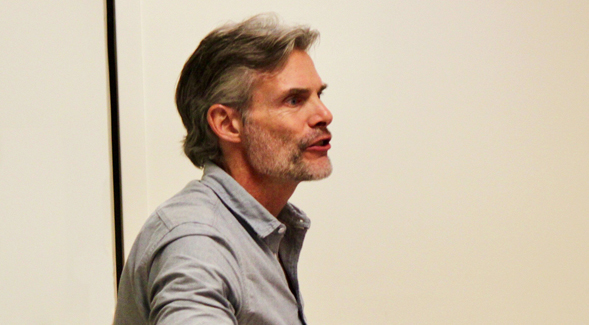SDSU Dwight Stanford Chair Lecture: U.S. Fixation on the Vietnam War
Pierre Asselins research looks at the war from the Vietnamese perspective.

The U.S. preoccupation with Vietnam and its lingering effect on domestic and foreign affairs here and elsewhere is the topic of an upcoming lecture by Pierre Asselin, San Diego State University’s new Dwight Stanford Chair in American Foreign Relations. His lecture begins at 7 p.m. on Thursday, Oct. 5, in Charles Hostler Hall (Storm Hall West, 012). The lecture is free and open to the public.
Asselin comes to SDSU from Hawaii Pacific University. He is the author of “A Bitter Peace: Washington, Hanoi, and the Making of the Paris Agreement,” which won the 2003 Kenneth W. Baldridge Prize, and “Hanoi’s Road to the Vietnam War, 1954-1965,” winner of the 2013 Arthur Goodzeit Book Award.
A native of Quebec City, Canada, Asselin became interested in Vietnam as a teenager.
“I grew up in a white, Catholic, French-speaking city,” he said. “In my last year of high school, we studied violence in the Western world, and I happened to see ‘Rambo’ and ‘Platoon.’ I wanted to know more about what happened in Vietnam.”
That curiosity eventually led him to the University of Hawaii, known for its doctoral programs in American and Asian history, particularly the history of Vietnam. He had planned to write his thesis on the U.S. bombing campaign in Vietnam, but was diverted by revelations that surfaced at the time about diplomatic stratagems during the war.
“I was researching my thesis during 1995-96 Congressional hearings on the POWs (prisoners of war),” Asselin recalled. “For the hearings, Congress mandated the declassification of documents pertaining to Henry Kissinger’s secret talks with North Vietnam (outside the semi-public Paris Peace Talks). I decided to shift my research focus from the bombing to the secret diplomacy of the Vietnam War.”
Asselin learned the Vietnamese language and visited Hanoi to mine government and communist party archives. Few other Westerners had the language skills to take advantage of these sources, which revealed how U.S. policy was perceived, answered—and according to Asselin, exploited—by Vietnamese leaders.
Asselin's latest book, “Vietnam’s American War: A History,” surveys the Vietnamese communist experience during the war, and is scheduled for release from Cambridge University Press in January 2018.



